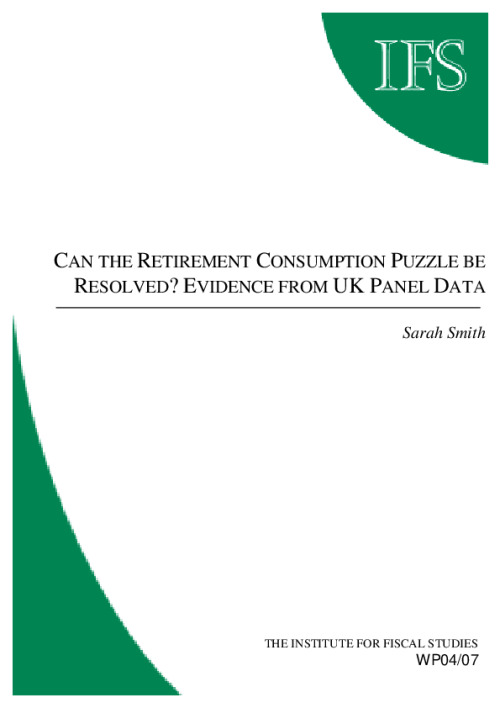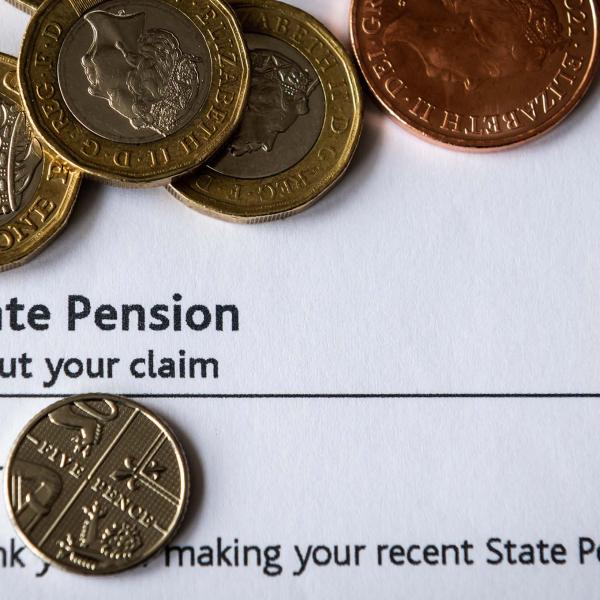Downloads

wp0407.pdf
PDF | 237.94 KB
This paper uses UK panel data to shed further light on the fall in spending at retirement (the retirement-consumption puzzle). It compares the profiles of spending and well-being at retirement for different groups, defined according to whether retirement is voluntary or involuntary. Where retirement is voluntary, food spending and individual well-being are largely smoothed through retirement; where retirement is involuntary, both food spending and well-being fall. This is consistent with the retirement consumption puzzle being linked to negative wealth shocks. However, there remains one group for whom retirement appears to be voluntary, yet whose spending falls. Fully resolving the puzzle requires a better understanding of how the nature of retirement links to spending and of how different groups substitute leisure for consumption.
Authors

Research Associate University of Bristol
Sarah is a Research Associate at the IFS and Head of the Department of Economics at the University of Bristol with interest in applied microeconomics.
Working Paper details
- DOI
- 10.1920/wp.ifs.2004.0407
- Publisher
- IFS
Suggested citation
Smith, S. (2004). Can the retirement consumption puzzle be solved?. London: IFS. Available at: https://ifs.org.uk/publications/can-retirement-consumption-puzzle-be-solved (accessed: 30 June 2024).
More from IFS
Understand this issue

Sure Start achieved its aims, then we threw it away
15 April 2024

The future of the state pension
21 December 2023

Pensions are far from broken but could still use a fix
18 December 2023
Policy analysis

Making mortgage guarantees permanent will help some first-time buyers, but only if they can afford a bigger mortgage
6 June 2024

How do the last five years measure up on levelling up?
19 June 2024

What has happened to earnings since 2019?
31 May 2024
Academic research

Income inequality in Ireland, 1987–2019
28 June 2024

Components of the evolution of income inequality in Sweden, 1990–2021
28 June 2024

Labour market inequality and the changing life cycle profile of male and female wages
15 April 2024